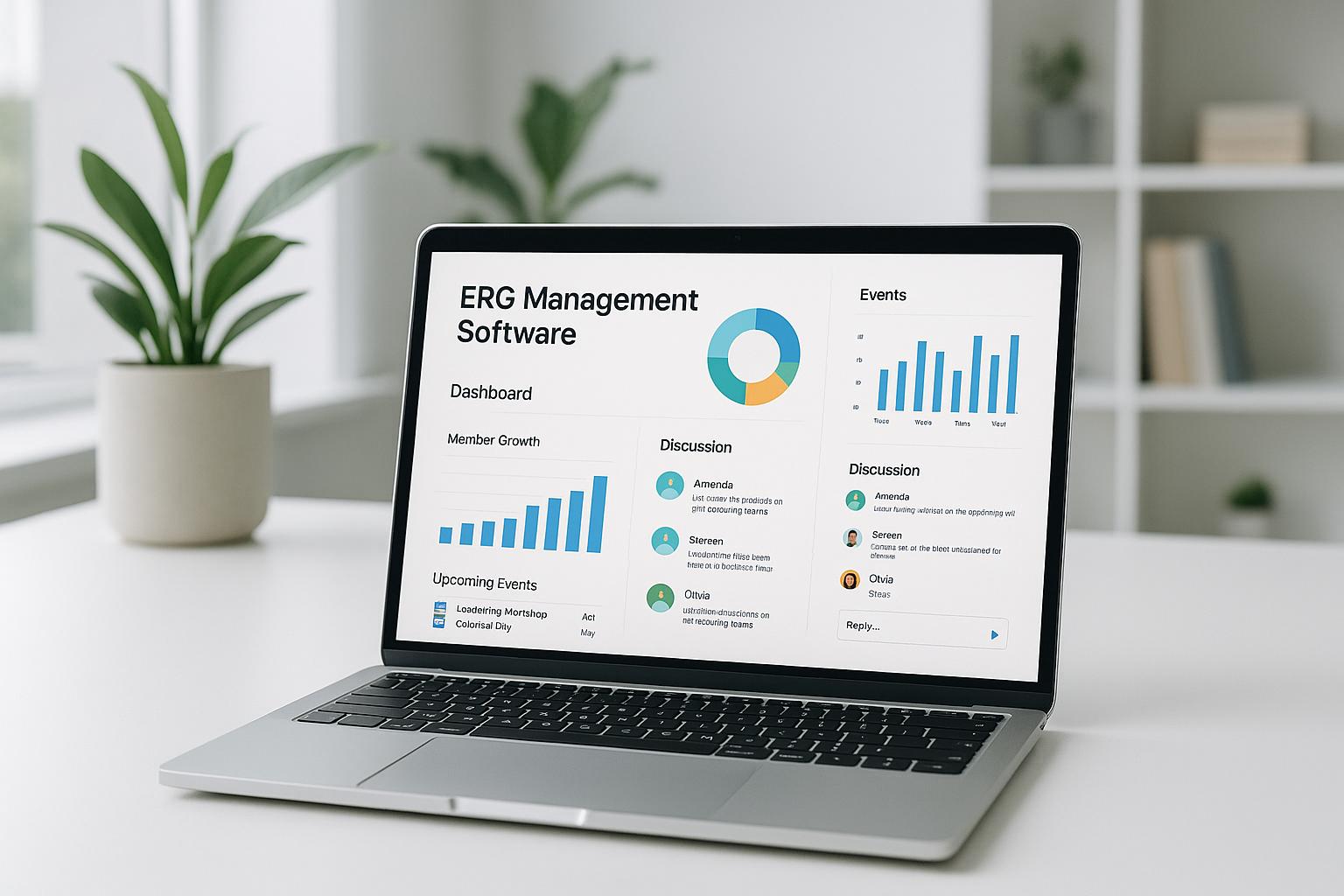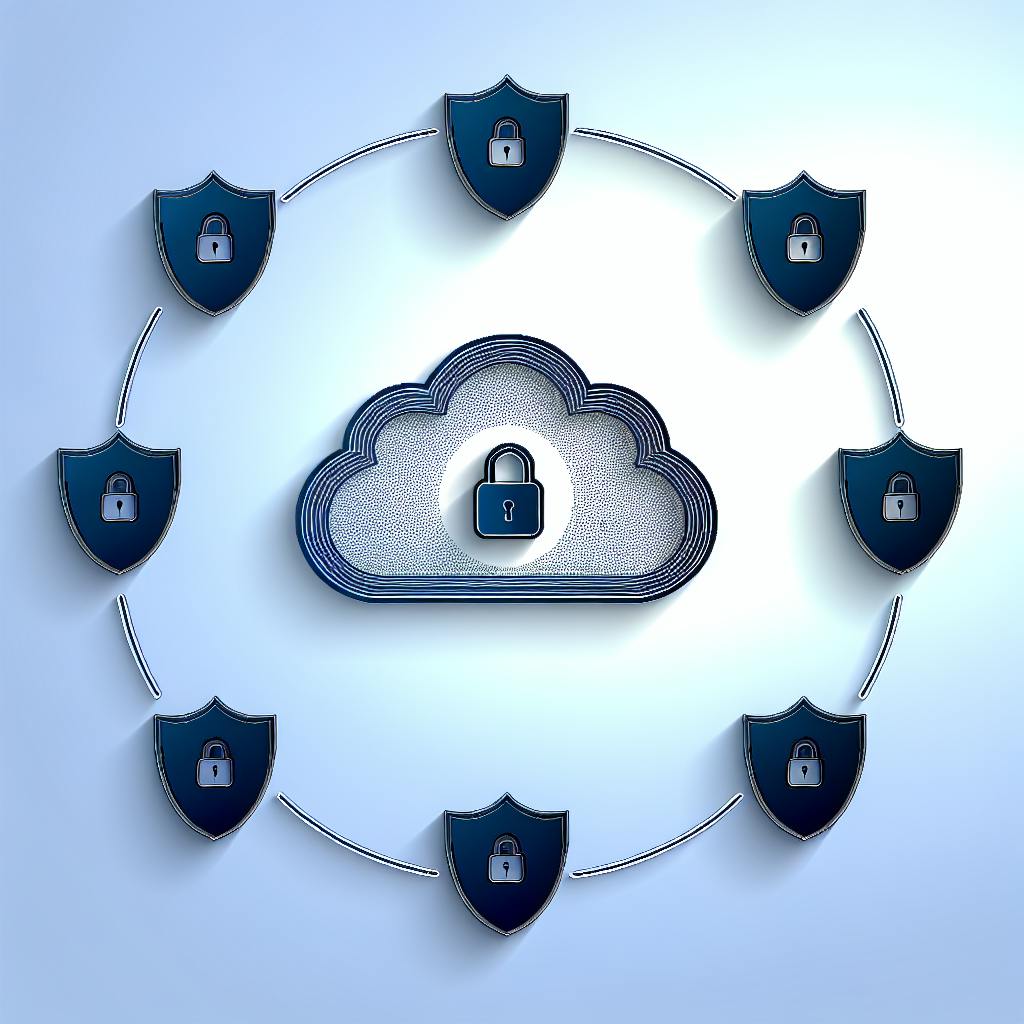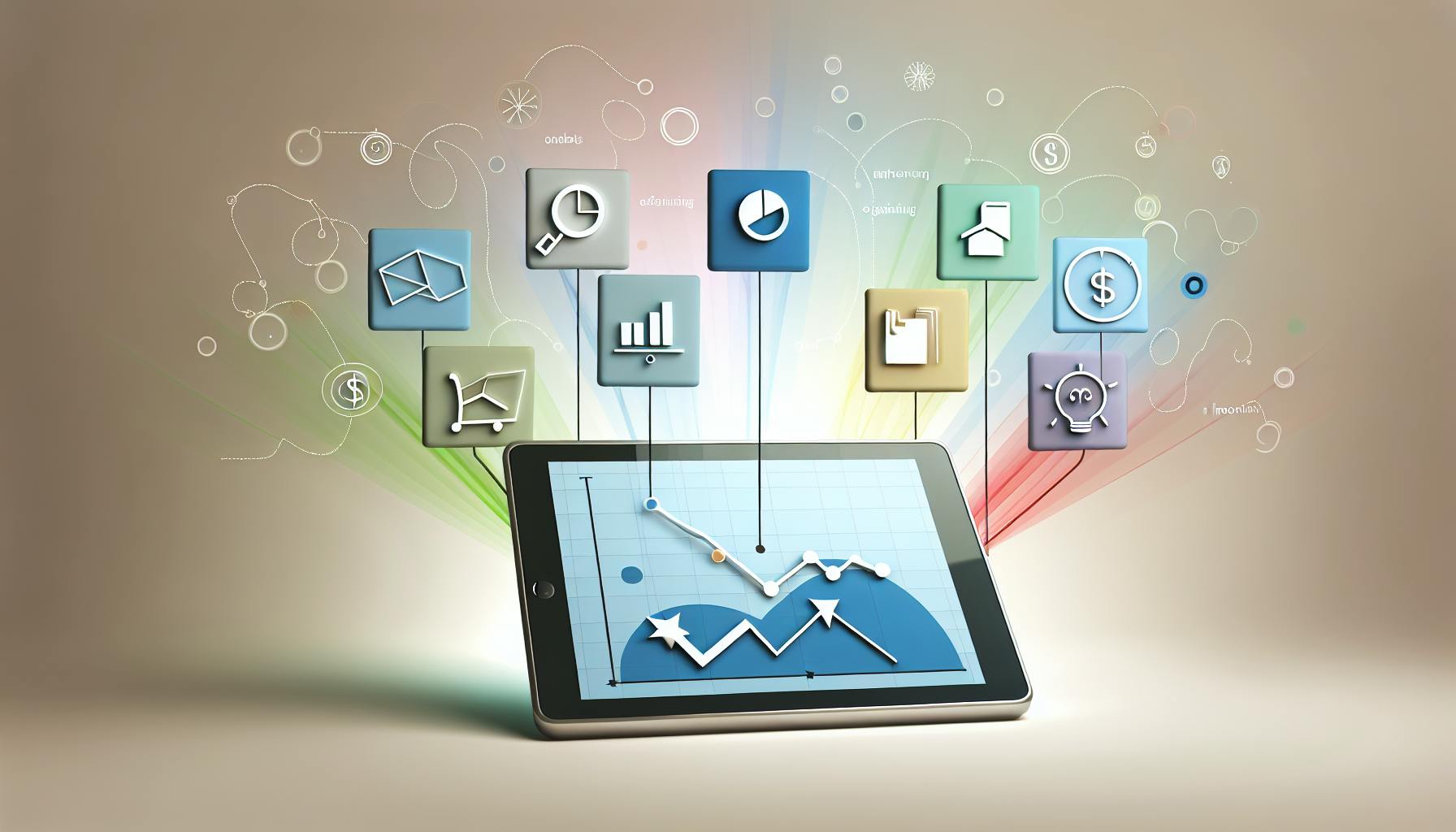Finding and managing employee information can be a frustrating challenge for HR teams.
Luckily, CRM software for HR offers a simple yet powerful solution - centralizing all employee data into one secure, accessible system.
In this post, we'll explore the key benefits of CRM for human resources management, from streamlining workflows to leveraging data analytics, revealing why CRM integration is becoming essential for efficient and strategic HRM.
Introduction to CRM Software for HR
CRM (customer relationship management) software has emerged as a valuable tool for HR departments to streamline processes and better manage employee data. As companies grow, HR teams face increasing challenges keeping track of employee information in scattered systems. CRM centralizes all employee data into one secure platform.
Exploring the Best CRM for HR
CRM platforms offer customizable databases to store and segment employee records. Key features like profile management, skills tracking, and access permissions make it easy to update staff details. Leading CRM systems for HR provide automation for onboarding, payroll, time tracking etc. Top solutions emphasize data security compliance and access restrictions. When exploring the best CRM for HR, key aspects to evaluate include:
- Customizable employee database with flexible fields
- Access and permissions management
- Integration with existing HR systems
- Automation for workflows like onboarding, offboarding
- Analytics and reports
The Intersection of CRM in HR
CRM software intersects human resources by unifying all employee data onto a single platform. This eliminates siloed systems and manual processes, allowing HR to focus on more strategic initiatives. Specifically, CRM enables:
- Centralized and up-to-date employee records
- Streamlined onboarding and offboarding
- Automated workflow triggers and alerts
- Data-driven talent management
- Enhanced employee engagement monitoring
With a 360-degree view of the workforce, HR can leverage data to make better decisions on learning programs, succession planning and more.
CRM for Employee Management: A Strategic Overview
Unlike traditional HR information systems, CRM takes an employee-centric approach with features like:
- Employee self-service portals
- Customizable talent profiles
- Skills gap analysis
- Automated training recommendations
- Succession mapping
- Sentiment tracking
This transforms employee management from reactive to proactive. HR can spot talent needs early and nurture skills development. By unifying data, processes and insights, CRM strategically evolves HR's focus towards driving productivity and growth.
Is CRM a HRIS system?
CRM software focuses more on managing customer relationships, while HRIS (Human Resource Information System) software is designed specifically for human resources management within an organization.
While there is some overlap in functions, CRM and HRIS serve different primary purposes:
- CRM software centralizes customer data to optimize sales, marketing, and customer support. Key features include contact management, opportunity tracking, customer analytics, and sales automation tools.
- HRIS software centralizes employee data to streamline HR processes like applicant tracking, onboarding, payroll, time tracking, and performance management.
So in summary:
- CRM software manages external customer relationships, while HRIS software manages internal employee data.
- CRM helps optimize customer acquisition and retention. HRIS helps optimize HR operations like recruitment, payroll, and performance reviews.
- CRM contains data like customer contacts, interactions, purchases. HRIS contains data like employee records, compensation, absences.
While it's possible for advanced CRM or HRIS systems to crossover into the other's functionality, they are fundamentally different types of systems with different core focuses. Most organizations use dedicated solutions for their customer relationship management and human resource information system needs.
Which CRM is best for recruitment?
Choosing the right customer relationship management (CRM) software is crucial for streamlining and optimizing recruitment efforts. The best CRM solutions for recruitment provide tools to organize candidate data, automate tasks, and analyze metrics to improve hiring outcomes.
When evaluating CRMs for your recruitment needs, consider the following key factors:
Functionality
- Does the software centralize candidate information and communication?
- What automation features are available for tasks like email and calendar management?
- Does it integrate seamlessly with your applicant tracking system (ATS)?
- Can you create customized workflows and pipelines?
Analytics
- Does the CRM provide actionable insights through custom reports and dashboards?
- Can you track essential recruitment KPIs like time-to-hire, source of hire, and more?
Flexibility
- Is the platform customizable to your specific recruitment processes?
- Does it allow extensive configuration without relying on developers?
Security
- What employee data protection and permissions protocols are in place?
- Does the vendor comply with security standards like SOC 2?
Some top-rated CRM systems purpose-built for streamlining recruitment include Manatal, Tracker, TalentReef, Thryv, and Freshsales. Evaluate your hiring objectives, processes, and budget to determine the best solution for your needs. Prioritize tools that allow easy integration, customization, and analytics relevant to recruitment.
Which is the best software for HR?
Human resources (HR) software provides tools to manage key aspects of employee data and personnel management. This includes features like:
- Recruiting and onboarding
- Payroll and benefits administration
- Performance reviews and goal tracking
- Learning management
- Employee self-service portals
What to Look for in HR Software
When evaluating HR software, it's important to consider:
- Integration capabilities: The system should integrate with existing software like accounting, project management, etc. This avoids duplicate data entry.
- Security: Ensure proper permissions, access controls, and encryption to protect sensitive employee data.
- Customization: Tailor fields, workflows, permissions, and branding to your company's specific needs.
- Ease of use: An intuitive interface improves employee adoption and productivity.
- Mobility: Access and manage HR data from any device.
- Analytics: Gain insights with real-time reporting and data visualizations.
Top HR Software Recommendations
Here are top options to consider based on business size:
- ADP Workforce Now: Comprehensive features, strong payroll, and analytics for midsize to large companies.
- SAP SuccessFactors: A full HCM suite with robust analytics and learning tools for larger enterprises.
- Rippling: All-in-one system for HR, IT, and payroll aimed at midsize companies. Intuitive and easy to set up.
- BambooHR: Simple, affordable HR software designed for SMBs. Offers strong applicant tracking and onboarding.
- Gusto: Streamlined payroll, benefits, and HR platform ideal for startups and small teams. Very user-friendly.
Evaluate your company’s specific needs and size to determine the best HR software fit. Prioritize capabilities that will maximize productivity and provide data to support strategic decisions.
sbb-itb-d1a6c90
What is the difference between CRM and HR?
CRM (Customer Relationship Management) software is designed to manage relationships and interactions with customers and potential customers. It helps track leads, opportunities, and customer data to improve sales and marketing efforts.
In contrast, HRM (Human Resource Management) software is focused on managing a company's employees and HR operations. This includes tracking employee data like contact details, compensation, performance reviews, time-off requests, and training records.
While CRM and HRM software have some overlap in terms of managing contact/user data, their core functions differ significantly:
- CRM focuses outwardly on managing customer relationships and sales pipelines to grow business revenue.
- HRM focuses inwardly on managing employees, HR workflows, and company culture.
Both CRM and HRM tools aim to optimize workflows, but CRM does so for sales and marketing processes, while HRM improves workflows for HR, recruiting, onboarding, and managing employee data.
Ultimately, CRM and HRM address different business needs - CRM handles customer data to boost sales, while HRM handles employee data to improve talent management. Companies can benefit from using both platforms together to get a comprehensive view of their relationships with customers and employees. The right integration allows businesses to leverage insights from both systems to better understand what drives growth and productivity.
Essential Features of Top CRM Software for HR
Centralized Employee Records System
A centralized CRM system serves as a robust platform to store and manage employee records. By integrating all HR data into a single system, it eliminates siloed information across multiple spreadsheets or documents. Key benefits include:
- Streamlined data management with all employee information in one place
- Enhanced data accuracy by eliminating version control issues
- Improved reporting and analytics with holistic data views
- Automated data backups for security and compliance
With role-based permissions, HR can grant employee self-service access to update personal information while restricting sensitive data. This saves manual work while maintaining data integrity.
Customizable HR Data Management
Flexible CRM systems allow creating customized fields and layouts for managing HR data. This enables tailoring the platform to track relevant information like:
- Employment status
- Job titles
- Salary and benefits data
- Performance metrics
- Training/certification records
- Attendance, leave and overtime
Customization streamlines data capture for specific organizational needs. Drag-and-drop form builders simplify creating online profiles, applications, questionnaires and more.
Automating HR Workflows with CRM
CRM systems like Zoho People integrate tools to automate tedious HR workflows:
- Onboarding automation for transitioning new hires seamlessly
- Absence management to track leaves and attendance
- Requisition management to streamline hiring
- Offboarding to handle exits efficiently
Built-in approval chains and reminders save manual follow-ups. Auto-populated digital forms standardize data capture. This automation enhances productivity and data accuracy.
Data Security and Privacy in HR CRM
Robust security features are vital for an HR CRM system holding sensitive employee data:
- Role-based access control to limit data visibility
- End-to-end encryption for data security
- Activity logs to track system access
- Data loss prevention features
- GDPR and HIPAA compliance for data privacy
This safeguards confidential personnel information against breaches. It also provides audit trails for compliance reporting to governing bodies.
Advantages of Integrating CRM in Human Resources Management
Streamlining HR Information Systems
Integrating CRM software into human resources can help centralize employee data into one secure system. This eliminates the need for multiple information silos, spreadsheets, and manual data entry across different platforms.
With a CRM system tailored for HR needs, companies can build custom databases to store relevant employee information. Data points may include contact details, compensation and benefits, performance reviews, feedback surveys, compliance paperwork, and more.
Dashboard views provide real-time visibility into this data for HR professionals and managers. Automated notifications and reminders can also help keep employee records and actions up-to-date across the organization.
Overall, CRM software enhances productivity through streamlined information sharing and access to integrated reporting tools. This allows HR teams to focus less on administrative tasks and more on strategic initiatives.
Enhancing Employee Data Security
CRM platforms offer robust security protections for sensitive employee information stored in the system. Capabilities may include:
- User access controls and permission settings to limit data visibility
- Encryption of data in transit and at rest
- Activity logging to track system usage
- Integrations with single sign-on (SSO) for secure access
- Backup and recovery tools
By centralizing employee records into a secure CRM system, companies can reduce security risks associated with multiple systems and spreadsheets. CRM solutions typically invest heavily in data security protections and infrastructure monitoring as a core service.
Regular audits of user roles and system logs can help ensure employee data remains protected according to company policies and industry regulations. This provides confidence that sensitive personal information stays private.
Leveraging Analytics for HR Data Insights
CRM analytics provide aggregated views of employee data to uncover actionable insights. HR leaders can track KPIs related to:
- Recruitment funnel conversion rates
- Employee retention over time
- Performance trends across departments
- Engagement survey feedback
By connecting data points in CRM employee profiles, HR has greater context for decision-making. This can lead to more targeted talent initiatives based on real analytics.
For example, noticing higher turnover among recently promoted managers may indicate a need for more leadership development training. Catching low employee satisfaction early on could prevent loss of top talent down the road.
In summary, integrating CRM software with human resource processes allows for centralized, secure, and analytics-driven people management across the employee lifecycle. This creates significant strategic value for HR leaders seeking to enhance operational efficiency.
Choosing the Best CRM Software for HR
Integration with Existing HR Software
Integrating a new CRM system with existing HR software is crucial for streamlining data management and ensuring continuity of operations. When systems are disconnected, HR professionals waste time toggling between platforms, entering data in multiple places, and reconciling discrepancies.
An ideal CRM solution will integrate seamlessly with your current HR information system (HRIS) through open APIs. This enables automatic syncing of employee records across platforms, eliminating duplicate data entry. For example, when an employee update is made in the HRIS, that change can automatically flow through to the CRM as well.
Prioritize CRM systems that natively integrate with leading HRM solutions like BambooHR, Gusto, Workday, SAP SuccessFactors, etc. Custom integrations may also be possible through Zapier or Integromat if the CRM supports webhooks.
Overall, choose a CRM that acts as an extension of your HR tech stack instead of an isolated silo of employee data. The goal is consolidated information sharing across tools you already rely on each day.
Scalability and Flexibility of CRM Solutions
As your HR department and employee count grows over time, the chosen CRM must be positioned to scale accordingly. Carefully evaluate both the maximum data storage allotted and the overall adaptability of system capabilities.
For storage, some CRM solutions charge premium fees for additional employee records beyond a certain threshold. Opt for unlimited or very high ceilings here to avoid future upcharges.
Equally important is flexibility in system customization. An ideal CRM enables HR to tailor fields, workflows, permissions, and data tracking to fit evolving needs. For example, as new data privacy regulations emerge, the CRM should allow adjustments to consent tracking and access restrictions.
Prioritize scalable solutions that provide extensibility and configurability without restrictive vendor dependencies. The CRM should bend to the needs of HR rather than the other way around.
Ensuring Data Privacy and Compliance
Any CRM managing sensitive employee information must have robust data security and privacy protocols in place. Review all policies and capabilities to ensure adherence with major regulations like GDPR, CCPA, HIPAA, and SOX where applicable.
Vet the CRM provider's security standards regarding encryption, access controls, breach monitoring, backup frequency, etc. Data should be well-protected both in transit and at rest.
Moreover, the CRM needs advanced tools to support consent, right-to-access, and right-to-delete requests. This enables compliance with data privacy laws related to employee personal information.
Overall, avoid any CRM that takes a lackadaisical approach to data security or legal obligations around HR datasets. Prioritize solutions with airtight protections and a diligent stance toward governance.
Conclusion: Embracing CRM for Effective HR Data Management
Recap: The Best CRM for HR Efficiency
The best CRM software for HR provides a centralized platform to securely store and manage employee records. Key features include customizable data fields, role-based permissions, reporting and analytics, and integration with existing HR systems. Top benefits include improved organization and access to employee information, reduced manual data entry, enhanced productivity through automation, and scalability as the organization grows.
By implementing a purpose-built CRM, HR teams can build rich profiles for each employee over time. This creates a valuable record of performance, achievements, skills, career progression and other relevant details.
Future of HRM Software: CRM Integration
As technology advances, integration between HRM systems and CRM software will continue improving. This will enable organizations to leverage CRM data for strategic workforce planning and talent management.
For example, sales CRM data on team performance can guide recruiting and hiring decisions. HR CRM data can also inform sales team composition based on competencies and experience.
The future of HRM lies in breaking down data silos. CRM systems play a key role in aggregating cross-functional data to derive actionable insights.
Final Thoughts on Secure and Efficient Employee Data Management
A CRM platform purpose-built for HR provides immense value through secure and structured data management. It enhances productivity, decision making, compliance and scalability.
As organizations grow, it becomes critical to implement robust systems to manage employee records. CRM software offers an integrated solution to help HR professionals organize and leverage employee data for organizational success.


